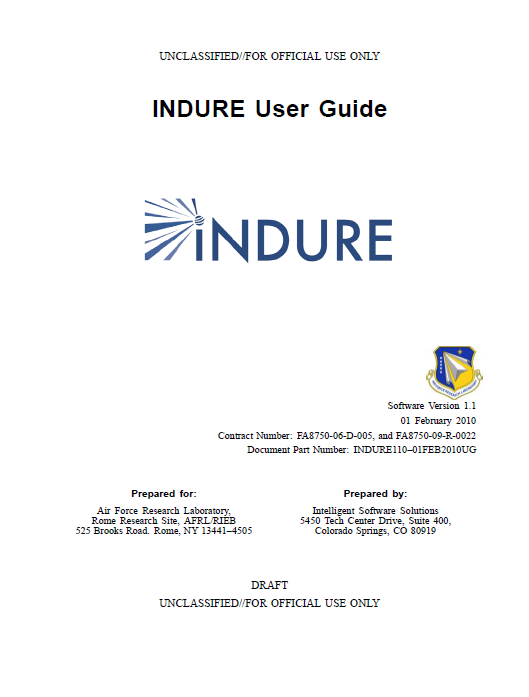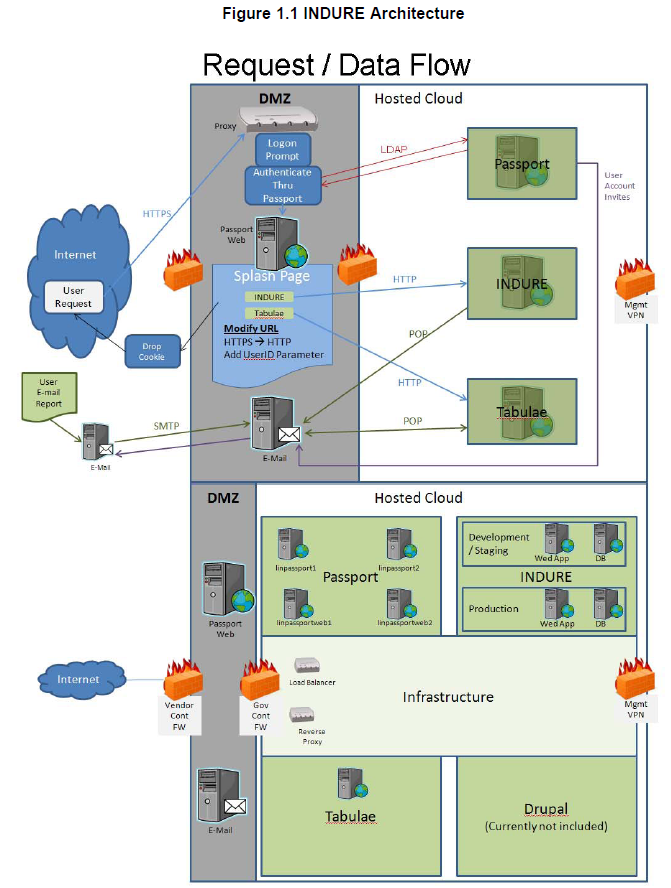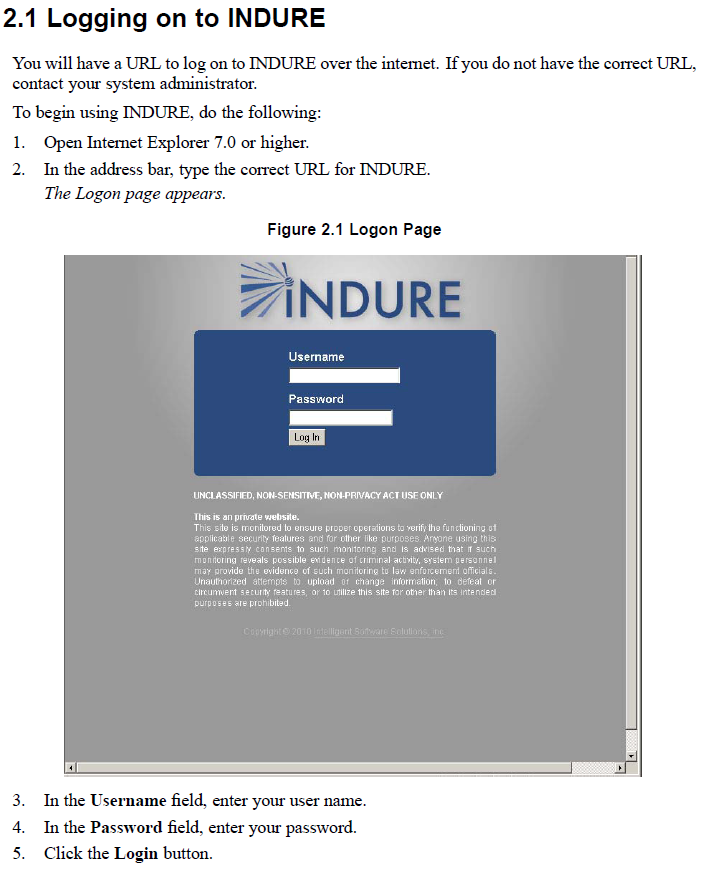Air Force Research Laboratory
- 58 pages
- Draft
- For Official Use Only
- February 1, 2010
1.1 System Overview
The International Distributed Uniform Reporting Environment (INDURE) software application provides both a data repository and the reporting tools to interact with that repository in a user-friendly manner. Users are able to insert information into the data repository using a wide variety of reports and make that data available to an international audience. Furthermore, users can query all the data within INDURE and export that data to a variety of external formats and programs. The purpose of INDURE is to provide a data repository into which non DoD communities like NGO’s, USAID and others involved in civil capacity, socio
cultural information, events of significance and engagement data can all can input, share, extract and analyze data in concert with DoD entities. INDURE provides these communities with standardized reporting tools that span significant activities (SIGACTS), Civil Capacity information, Socio Cultural and Engagement disciplines.The objectives of INDURE are to provide tools that allow the analyst to:
• Input data for access by the military, USAID and the NGO community
• Analyze and visualize multi-source data
• Storeandquery data about events, places, organizations, people, and resources
• Publish data in the INDURE database for use by external organizations
• Input standardized reports that are custom-designed for each community, yet available to
all communitiesINDURE version 1.1 contains structured information on the following:
• SIGACTS: UNCLASSIFIED “Significant Activity” reporting repository to collect events of
significance in the operational environment.• Civil Capacity and Civil Information of Concern Management: Reports used for
reconstruction and transition and project tracking. Initially the CERP report will be utilized in
this role for version 1.1.• Engagements: Information on engagements with host nation individuals, including key
leaders, regular tribal members and civilians and their interactions with NGO’s and PRT’s.The PRT report will serve as the catalyst for this type of reporting in version 1.1.
All INDURE data can be queried and the results can be sent to the map or other output, including
a roll-up of 24 hours of reports.…



